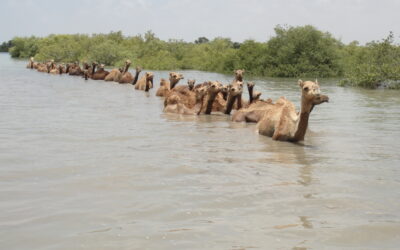Working with MANAVLOK, a voluntary organization that has been dedicated to rural development for over 42 years, has been a transformative experience for me. MANAVLOK’s commitment to participatory approaches in development is not just a methodology; it’s a philosophy that has profoundly shaped my perspective on community work and empowerment.
Understanding The Participatory Approach
Unlike traditional top-down approaches, participatory methods involve the community at every stage of the project—from planning and implementation to evaluation. This methodology promotes self-respect, dignity, and inclusiveness among community members, making them active stakeholders rather than passive recipients of aid. One of the key projects that illustrate this approach is the Trupti Kitchen initiative.
Trupti Kitchen provides two meals a day to villagers over 65 years of age, individuals with disabilities, destitute individuals, widows, and elderly orphans. What makes this project unique is its emphasis on community involvement.
The kitchen holders, who are responsible for preparing and distributing the meals, are selected from within the village. This not only instills a sense of responsibility and ownership among the kitchen holders but also ensures that the meals are culturally appropriate and well-received by the beneficiaries.

The Impact Of Community Engagement
The Trupti Kitchen, which started with just 11 community members, now serves 500 senior citizens across 42 villages. This expansion is a testament to the project’s effectiveness and the community’s willingness to support their own. Participants contribute a small amount towards the cost of the meals, and in cases where the full amount cannot be collected, MANAVLOK steps in with resource support to ensure no one goes hungry.
Another remarkable initiative is the Dryland Horticulture program, which supports farmers in the Marathwada region by promoting sustainable agriculture practices. Through this program, MANAVLOK provides financial assistance for purchasing custard apple saplings and drip irrigation systems. Farmers contribute towards the cost, which fosters a sense of ownership and ensures the interventions are aligned with local needs.
Challenges And Lessons Learned
Despite the successes, working with participatory approaches is not without its challenges. One recurring issue is the disconnect between the efforts of the organization and the attitudes (or expectations?) of the participants. Sometimes, despite dedicated efforts, participants may not fully appreciate or value the support they receive. This can be disheartening for organizations striving to make a difference. Additionally, there is often a lack of coordination among NGOs, leading to duplication of efforts and confusion among beneficiaries. Effective collaboration and communication are crucial to ensure that support is provided in a cohesive and impactful manner.

The Power Of Empowerment
Through my journey with MANAVLOK, I have learned that empowerment is a powerful outcome of participatory approaches. By actively engaging community members and building their capacity to drive change, MANAVLOK nurtures a culture of self-reliance and resilience. This empowerment extends beyond the lifecycle of any single project, equipping communities with the skills and confidence to address future challenges independently. This approach has reinforced my belief that true transformation begins with listening, learning, and working together towards shared goals.
By prioritizing community involvement and fostering inclusive growth, we can drive meaningful change from within and build resilient communities for the future. Working with MANAVLOK has been more than just a job; it has been a journey of learning and growth. It has shown me the transformative impact of local engagement and collective responsibility in rural development initiatives.




If the program is a success and the organization thinks that they have made a difference, then it is not really a challenge or an issue if the participants are not appreciating the organizations’ support. The community is still participating in the process of change that you initiated. Of course there is always room for improvement in relationships and communication.